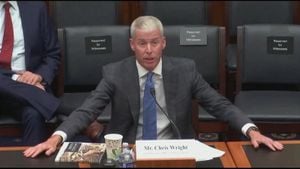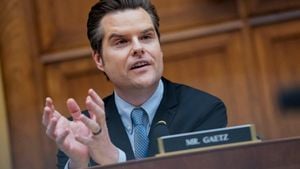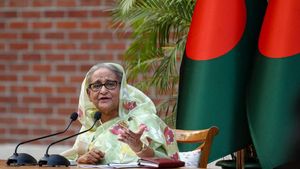Brazil took center stage at the recent G20 summit held in Rio de Janeiro, launching the Global Alliance Against Hunger and Poverty, with significant participation from 82 countries. Brazilian President Luiz Lula da Silva, who has pushed for international cooperation since assuming office, emphasized the need for political accountability to tackle what he called the man-made issues of hunger and poverty.
The initiative, announced on November 18, 2024, aims to address the alarming fact presented by President Lula—that over 733 million people globally suffer from hunger, which he attributes not to food scarcity but to systemic inequalities fueled by poor political decisions. Despite the world producing nearly six billion tons of food each year, disparities persist, illustrating the urgent need for collective and concerted efforts.
Within the scope of the Global Alliance, Lula expressed the goal to mobilize resources by implementing cash transfer programs and enhancing school meal initiatives, aiming to reach 500 million beneficiaries by 2030. This mission aligns with broader global aims set forth by the United Nations Sustainable Development Goals (SDGs), which prioritize eliminating hunger and reducing poverty.
The Global Alliance already boasts participation from diverse groups and organizations, including the European Union, the African Union, various financial institutions, and NGOs. Citing the importance of diverse involvement, Lula noted, “Those who have always been invisible will be at the center of the international agenda,” during the alliance's launch.
Responses to Lula's initiative have varied, with many nations expressing support and eagerness to collaborate on these pressing global issues. PM Narendra Modi from India lauded the alliance as necessary, highlighting the need to focus on concerns experienced by the Global South amid various global crises.
Notably, these discussions unfolded against the backdrop of rising tensions within the G20 itself, particularly due to Argentina's lukewarm participation story. Argentina’s President Javier Milei had initially rejected joining the alliance, creating considerable political friction with neighboring Brazil. Under Milei's administration, characterized by drastic austerity measures, poverty rates have spiked to nearly 53 percent, leading to criticism about his commitment to addressing hunger domestically or internationally.
Despite the initial hesitancy, Milei's administration later managed to secure Argentina's place among the signatories, albeit under contentious circumstances. Reports indicated negotiations were fraught with issues surrounding gender equality and taxation policies favored by most participating nations. Argentina's ultimate decision to join at the eleventh hour reflects both domestic challenges and external diplomatic pressures, as President Milei has historically aligned with right-wing perspectives often at odds with Lula’s left-leaning policies.
The Global Alliance's mission is ambitious, focusing on implementing sustainable public policies and providing financial assistance to some of the world’s most vulnerable populations. Government representatives anticipate hosting the first full meeting of the Board of Champions, which will guide the alliance's governance, by early 2025, with Brazil taking the lead until then.
Critically, success hinges on ensuring countries not only sign up but also implement meaningful, long-term solutions. Experts warn of potential pitfalls, urging consistent involvement from civil society and long-lasting commitments from member states. Observers have pointed out previous initiatives often falter amid lack of implementation or oversight, raising concerns about this venture translating objectives to reality.
Differing opinions also arise on the effectiveness of the United States’ involvement, particularly with the Republican leadership expected to change under the upcoming Trump administration, which poses questions about continued support for such international initiatives.
President Lula wrapped up the launch with poignant remarks on the moral imperatives surrounding the issue of hunger. “Hunger and poverty are not the result of scarcity or natural phenomena. The fact is, at the global level, we must do justice to those suffering such ignoble conditions,” reiterated Lula, stressing the disconnection between military expenditure and humanitarian needs—calling for resources to be invested where they could have the most significant impact.
Brazil’s leadership role at this international forum has resurrected hope for renewed global collaboration between nations to combat systemic inequalities. The G20 summit and the subsequent discussions showcase the pressing need to pivot from mere rhetoric to actionable strategies affecting the lives of millions worldwide.
The next steps for the Global Alliance will see nations not only committing to this initiative but establishing concrete frameworks to solve the defining issues of our time. With political will and public support, there lies the potential to rework the narrative around hunger, ensuring it’s no longer viewed as inevitable but rather as something addressable and preventable.



